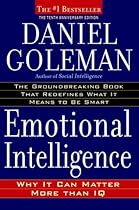“It is my intention to work into each of my lectures … one lie”

One of my favorite professors in college was a self-confessed liar.
I guess that statement requires a bit of explanation.
The topic of Corporate Finance/Capital Markets is, even within the world of the Dismal Science, (Economics) an exceptionally dry and boring subject matter, encumbered by complex mathematic models and obscure economic theory.
What made Dr. K memorable was a gimmick he employed that began with his introduction at the beginning of his first class:
“Now I know some of you have already heard of me, but for the benefit of those who are unfamiliar, let me explain how I teach. Between today until the class right before finals, it is my intention to work into each of my lectures … one lie. Your job, as students, among other things, is to try and catch me in the Lie of the Day.”
And thus began our ten-week course.
This was an insidiously brilliant technique to focus our attention – by offering an open invitation for students to challenge his statements, he transmitted lessons that lasted far beyond the immediate subject matter and taught us to constantly check new statements and claims with what we already accept as fact.
Early in the quarter, the Lie of the Day was usually obvious – immediately triggering a forest of raised hands to challenge the falsehood. Dr. K would smile, draw a line through that section of the board, and utter his trademark phrase “Very good! In fact, the opposite is true. Moving on … ”
As the quarter progressed, the Lie of the Day became more subtle, and many ended up slipping past a majority of the students unnoticed until a particularly alert person stopped the lecture to flag the disinformation.
Every once in a while, a lecture would end with nobody catching the lie which created its own unique classroom experience – in any other college lecture, end of the class hour prompts a swift rush of feet and zipping up of bookbags as students make a beeline for the door.
On the days when nobody caught the lie, we all sat in silence, looking at each other as Dr. K, looking quite pleased with himself, said with a sly grin: “Ah ha! Each of you has one falsehood in your lecture notes. Discuss amongst yourselves what it might be, and I will tell you next Monday. That is all.”
Those lectures forced us to puzzle things out, work out various angles in study groups so we could approach him with our theories the following week.
Brilliant … but what made Dr. K’s technique most insidiously evil and genius was, during the most technically difficult lecture of the entire quarter, there was no lie. At the end of the lecture in which he was not called on any lie, he offered the same challenge to work through the notes; on the following Monday, he fielded our theories for what the falsehood might be (and shooting them down “no, in fact that is true – look at [x]”) for almost ten minutes before he finally revealed: “Do you remember the first lecture – how I said that ‘every lecture has a lie?'”
Exhausted from having our best theories shot down, we nodded.
“Well – THAT was a lie. My previous lecture was completely on the level. But I am glad you reviewed your notes rigorously this weekend – a lot of it will be on the final. Moving on … ” Which prompted an arousing melange of exasperated groans and laughter from the classroom.
And while my knowledge of the Economics of Capital Markets has faded in time, the lessons that stayed with me were his real legacy:
- “Experts” can be wrong, and say things that sound right – so build a habit of evaluating new information and check it against things you already accept as fact.
- If you see something wrong, take the initiative to flag it as misinformation.
- A sense of playfulness is the best defense against taking yourself too seriously.
I’ve had many instructors before and since, but few that I remember with as much fondness – and why my favorite professor was a chronic liar.
By Kai Peter Chang, author of The 16 Essential People of Your Life
First published on overcomingbias.com and LiveJournal.
Reproduced on Zen Moments with the author’s kind permission
 Emotional Intelligence: Why It Can Matter More Than IQ – 10th Anniversary Edition.
Emotional Intelligence: Why It Can Matter More Than IQ – 10th Anniversary Edition.
By Daniel Goleman
“Everyone knows that high IQ is no guarantee of success, happiness, or virtue, but until Emotional Intelligence, we could only guess why. Daniel Goleman’s brilliant report from the frontiers of psychology and neuroscience offers startling new insight into our “two minds”—the rational and the emotional—and how they together shape our destiny. Through vivid examples, Goleman delineates the five crucial skills of emotional intelligence, and shows how they determine our success in relationships, work, and even our physical well-being. What emerges is an entirely new way to talk about being smart. The best news is that “emotional literacy” is not fixed early in life. Every parent, every teacher, every business leader, and everyone interested in a more civil society, has a stake in this compelling vision of human possibility.” – Amazon book review

That was the GREATEST!!! I love this story ~ What an excellent teaching tool… Thank you ZenMoments and Thank YOU, Kai Peter Chang!
bless you!
~Sharon
I wouldn’t like this professor, in fact, I’d sue him and the university.
On what legal grounds? Oh, right. None.
Yes, his desire to have you become an astute and fully engaged student would be academically negligent.
Not only was this a good story, but you told it so well!
Makes me feel like i have to rework mine.
nice way to make others concentrate on your words….
Very good.
Excellent story!
There are so many amazing applications to this… perhaps a blogging contest… which blog post is a lie? Or in a teleseminar to keep people’s attention to the end… or in a series of posts or calls or lessons… Brilliant really!
I really enjoyed this story! Thank you!!
Brilliant technique to keep their attention. Not just get it, but the whole of it is impressive…get it, keep it, and have them feel compelled to go over the material.
I think the subject matter is a good one for lies too, because that’s the subject where our politicians manipulate us most…corporate finance.
It’s innovative techniques like these which keep pupils interested in the subject matter, love the simplicity of technique used, at the same time I find it amusing and funny although I was not part of the experience but would have love to been there 😉
Very interesting technique he did there! I mean, who would have thought? One of my professors at school has been pretty good with giving remarks that would make us think twice if he really means what he says or just testing us… so overall, it was fun. 🙂
I’m no good at lying, but I do something sort of like this in the math classes I teach. I tell students that everyone makes mistakes, and that I hope they’ll catch mine. When the whole class has caught me in 30 mistakes, I bring them donuts. They love donut points, and it helps them question what I’m saying. Even when they’re wrong, they learn more because of questioning me.
That’s fantastic! I bet you are a wonderful math teacher.
I love the creativity involved….clearly this professor was driven by a passion for passing on critical thought and analysis. If all teachers and professors were so skilled, think about the level of engagement the learners would reach.
An excellent story. Not only did his lies keep the attention of the class and have them think critically about what they were being told but beautifully executed from the first lecture to the last.
A technique I think I shall be inspired by from here on in.
Given how terrible we humans are at source memory attribution, I would be seriously concerned about the possibility that a few years on, students in the class will remember the lie without remembering that it was flagged as a lie. Mixing misinformation into legitimate information is a recipe for confusion, even if later you explicitly tell people what is true and what is false.
Love the story! You have been BAed (Bad Astronomy linked). Well worth the read.
CogPsycher, actually I wouldn’t worry too much about the possible confusion. If someone tries to pass on the falsehood, refer to the three summary points. If anything, you highlight why there is such a desperate need for people who are able to think critically. If they accidentally pass along the false info, someone will call them on it!
What a fantastic story. I wish my professors had been so cool. And, like you said, a really great strategy to get your students paying attention and studying.
Excellent technique. I still remember my 4th grade teacher for his techniques. That goes to show that memories can be cherished from all grades of education.
Mind = blown.
Very interesting!
One thing worth noting, however. When your professor said, “it is my intention to work into each of my lectures … one lie,” he was indeed telling the truth, NOT lying. In his last lecture, he said “Ah ha! Each of you has one falsehood in your lecture notes. Discuss amongst yourselves what it might be, and I will tell you next Monday. That is all.” THAT statement was the lie in the final lecture!
AWESOME!
Very good! I wouldn’t have thought of that.
I don’t go quite as far as this professor — but I do like to teach skeptical web-surfing by giving students a link to eight hoax web sites, and asking them to pick out a real site from amongst them. Most of them had no idea that a hoax web site could be so convincing.
What is brilliant about the technique is not just the effect it has on the students but the positive benefit to the professor. Think about it! You are going to tell a lie to a bunch of university students whom you have already told to watch for the lie. So, what wil you lie about in each lecture? How will you phrase the lie? When will you tell it? How much of a lie will it be? What kind of a lie?
The great thing about the technique is that it maintains interest and motivation for the Professor as much as it does for the students. It is a game to the professor that causes him to review his notes, consider his facts, and seriously look at which ones he may be able to alter or fabricate.
I don’t know about you, but I have sat in plenty of classes where the professor probably read the book the week before he or she taught it. These professors were more interested in showing up to work than the actual subject they were teaching. It was always a pleasure to find a professor passionate about the work that he or she was doing. I would assert from the story above that the professor was indeed passionate, not only about the subject but about teaching the students to question that which they think they know. Excellent story!!!!
I had a chemistry teacher who probably would have done that, except she probably would have gotten in trouble. Interesting thing, though. She had dyslexia, so she would occasionally mix up numbers, but that kept more people paying attention because they had to follow along, not just with the writing, but with the train of thought, as well. If she had had no other redeeming qualities as a teacher, that would have made her a horrible teacher, but with her ability to keep students focused, and her understanding of the concepts, it became a positive.
I only remember two or three professor’s names from all my school and college education. Only those who inspired me and made me see the usefulnes of their teachings, and the beauty of their subjects, even when they looked boring or useless before meeting them.
I remember math and statistics professors who simply started teaching formulas for solving problems, but without having explained what the problems were. Allmost all of us failed their courses, and they felt proud for having such a high number of failing students, meaning that their courses were way more demanding than other professors ones.
First and foremost, confront your students with a challenge. Make them think and pull their hair until they give up. Then, and only then, show them the solution.
This is the best advice I can give to any educator, learned from my two or three dear professors… sorry for my english.
That is absolutely brilliant!
Absolutely brilliant! I really wish I would have had more creative professors that challenged us instead of technical and dry instructors that got the information across but failed to inspire. Sure, there were a few through the years that really got you excited and interested but far too many in education seem to just mail it in.
Great story- thank you!
His technique was absolute brilliance!